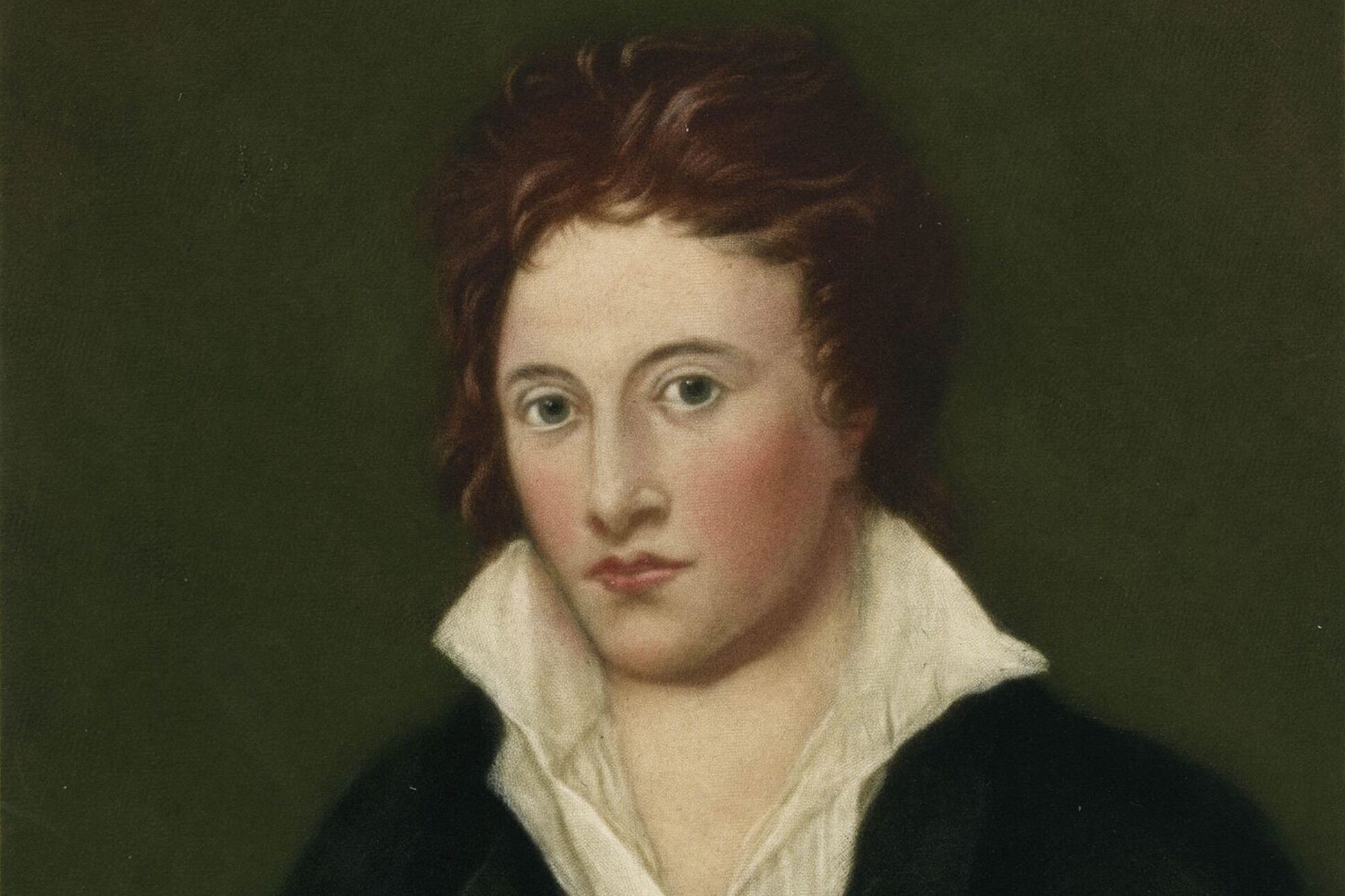Ode To The West Wind Poem by Percy Bysshe Shelley
Ode To The West Wind
I
O wild West Wind, thou breath of Autumn's being,
Thou, from whose unseen presence the leaves dead
Are driven, like ghosts from an enchanter fleeing,
Yellow, and black, and pale, and hectic red,
Pestilence-stricken multitudes: O thou,
Who chariotest to their dark wintry bed
The winged seeds, where they lie cold and low,
Each like a corpse within its grave, until
Thine azure sister of the Spring shall blow
Her clarion o'er the dreaming earth, and fill
(Driving sweet buds like flocks to feed in air)
With living hues and odors plain and hill:
Wild Spirit, which art moving everywhere;
Destroyer and preserver; hear, oh, hear!
II
Thou on whose stream, 'mid the steep sky's commotion,
Loose clouds like earth's decaying leaves are shed,
Shook from the tangled boughs of Heaven and Ocean,
Angels of rain and lightning: there are spread
On the blue surface of thine aery surge,
Like the bright hair uplifted from the head
Of some fierce Maenad, even from the dim verge
Of the horizon to the zenith's height,
The locks of the approaching storm. Thou dirge
Of the dying year, to which this closing night
Will be the dome of a vast sepulchre,
Vaulted with all thy congregated might
Of vapors, from whose solid atmosphere
Black rain, and fire, and hail will burst: oh, hear!
III
Thou who didst waken from his summer dreams
The blue Mediterranean, where he lay,
Lulled by the coil of his crystalline streams,
Beside a pumice isle in Baiae's bay,
And saw in sleep old palaces and towers
Quivering within the wave's intenser day,
All overgrown with azure moss and flowers
So sweet, the sense faints picturing them! Thou
For whose path the Atlantic's level powers
Cleave themselves into chasms, while far below
The sea-blooms and the oozy woods which wear
The sapless foliage of the ocean, know
Thy voice, and suddenly grow gray with fear,
And tremble and despoil themselves: oh, hear!
IV
If I were a dead leaf thou mightest bear;
If I were a swift cloud to fly with thee;
A wave to pant beneath thy power, and share
The impulse of thy strength, only less free
Than thou, O uncontrollable! If even
I were as in my boyhood, and could be
The comrade of thy wanderings over Heaven,
As then, when to outstrip thy skiey speed
Scarce seemed a vision; I would ne'er have striven
As thus with thee in prayer in my sore need.
Oh, lift me as a wave, a leaf, a cloud!
I fall upon the thorns of life! I bleed!
A heavy weight of hours has chained and bowed
One too like thee: tameless, and swift, and proud.
V
Make me thy lyre, even as the forest is:
What if my leaves are falling like its own!
The tumult of thy mighty harmonies
Will take from both a deep, autumnal tone,
Sweet though in sadness. Be thou, Spirit fierce,
My spirit! Be thou me, impetuous one!
Drive my dead thoughts over the universe
Like withered leaves to quicken a new birth!
And, by the incantation of this verse,
Scatter, as from an unextinguished hearth
Ashes and sparks, my words among mankind!
Be through my lips to unawakened earth
The trumpet of a prophecy! O Wind,
If Winter comes, can Spring be far behind?
I love this poem. I feel forceful like the West wind.I am so intoxicated by its expressions that whenever i read this poem. I want to remain in the trance.I feel if I am young again and expect alot from myself.This poem touches my soul and it increases my energy level.Inshort i wish if this 'wild spirit' could remain forever in me so that I would be able to give meaning to my life.
Maenad are wild, insane women who could not be reasoned with. They indulged in copious amounts of violence, bloodletting, sexual activity, self-intoxication, and mutilation. They were usually pictured as crowned with vine leaves, clothed in fawnskins and carrying the thyrsus, and dancing with wild abandon. The Maenads are the most significant members of the Thiasus, the retinue of Dionysus. this is a literary divice known as an allusion
I think, that in this poem, the poet is trying to expresse his hope for tommorrow by the seasons and the coming of spring. Because in the last verse, he says: 'O Wind, If Winter comes, can Spring be far behind? ' and also, what is Maenad? and comments welcome.
Percy Bysshe Shelley is the composer of the most lyrical and beautiful verse in the English language and 'Ode to the West Wind' is a prime example of that. Here he handles the extremely difficult terza rima rhyme scheme of Dante Alighieri with effortless ease. He is the greatest of the Romantics and, arguably, also the greatest ever.
If Winter comes, can Spring be far behind? This has become on of my favorite lines of PB Shelley!
O mightiest west wind I am sluggish; oozy soul Take me away with your wave excellent masterpiece of PB Shelley

WHOOAA! NICE POEM! it is a prime example of the poet's passionate language and symbolic imagery, the ode invokes the spirit of the west wind, DESTROYER AND PRESERVER, the spark of creative vitality.....